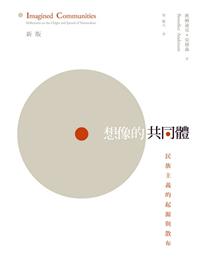Conferences have become one of the most effective ways to generate and disseminate knowledge on important issues. This book touches on all aspects of a conference. With it, readers can become more familiar with the specific vocabulary and phrases used in an English conference.
The author of the book served as the first WTO ambassador of Taiwan from 2002 to 2005. Throughout the book, readers will become equipped with knowledge of how to function in different roles for business, political, or academic conferences.
本書分6個章節,各章2至6個小節,按部就班介紹各種會議場景,模擬一場高級的政經或學術研討會議的不同情境,並提供實用句型幫助讀者在會議中得體發言。是英文流利者想更進一步的利器,也是商業人士快速擬定演講稿、公開簡報不可或缺的工具。
作者簡介:
Ching-Chang Yen顏慶章
國立臺灣大學法學學士、政治學碩士,美國密西根大學法學碩士,威斯康辛大學法學博士。曾任財政部政務次長、部長及駐WTO首任常任代表。以學者從政的自持,累積豐富的國際會議經驗與交流心得,加上醉心英文修辭與西洋文化,寫成《高階會議英文》。
Dr. Yen is currently the Chair Professor of Law in CK Yen Foundation, Soochow University. Serving as finance minister from 2000 to 2002, he brought about the first-ever financial reform to Taiwan’s financial market. A longtime expert in GATT/WTO law, Dr. Yen was appointed to serve as Taiwan’s first WTO ambassador from 2002 to 2005. He also has been a prolific author of taxation and GATT/WTO law.
章節試閱
內文摘要
安排講者在聽眾面前敘述或討論相關主題的場合,即為通稱研討性質的會議。英文辭彙如:colloquium, conference, council, convention, meeting, panel discussion, round table, workshop, seminar, forum 及symposium 等,均可適用於如此的場合。Symposium 一詞,通常屬於更為正式的稱謂,包括有較長的會議時間與較多的講者與聽眾。
英文symposium,可追溯古希臘人結合葡萄酒與知識對話的愛好,當時稱之為symposion。出席者在結束餐宴與飲酒後,通常會進行修辭或論辯的競賽。十八世紀的英國「紳士俱樂部」(gentlemen’s club),開始出現英文symposium 的辭彙,藉由飲酒來淬鍊知識對話。正可呼應:「我飲酒時我思考,我思考時我飲酒」這句法國作家拉伯雷(Francois Rabelais, 1494-1553)的名言!到十九世紀時,symposium 已增添有如今日的莊重氣氛,減少飲酒在議事程序的分量。
回顧symposium 源遠流長的這段歷史, 古希臘當時詩人歐布洛斯(Eubulus)曾藉由酒神Dionysus,充滿趣味地描述適量與不適量飲酒的詩句。所謂三盅酒的適量飲酒,第一盅是為健康、第二盅是為愛情及歡樂、第三盅是為行將睡眠。第四盅至第十盅的飲酒,則將出現諸多的醜態與惡行,值得吾人稍加玩味這位詩人的優雅文詞!但根據希臘文學與藝術的記載,這「三盅酒」的飲酒規律,並未為古希臘人充分奉行。
上述談及英文的symposium,竟可溯及古希臘已廣為風行的習尚。本書將研討會比擬為樂團,驚訝查悉英文的orchestra,也源自古希臘劇院舞臺作為合唱場地的稱謂。值得再提兩個事例,一是西班牙小說家、劇作家及詩人塞萬提斯(Miguel de Cervantes)於十七世紀初期,寫成小說《唐吉訶德》(Don Quixote)的一句話:「我必須說真話,除真話外別無其他。」(I must speak the truth, and nothing but the truth.)竟演變成當今英美法系或受過英美法影響國家的法院,作證時必須宣讀的共同證言。內容雖略有差異,但均有類似文句:「我莊重宣誓提供的證言均為真話,完整的真話,除了真話外別無其他。」(I solemnly affirm that the evidence to be given by me shall be the truth, the whole truth and nothing but the truth.)
另一個事例是一九七九年五月四日,英國首相柴契爾夫人(Margaret Hilda Thatcher, 1925-2013)初次搬進唐寧街十號首相官邸,面對媒體引述亞西西聖方濟各(St. Francis of Assisi, 1181-1226)的話:「當有爭議,讓我們帶來和諧;當有錯誤,讓我們帶來真理;當有疑惑,讓我們帶來信心;而當有困頓,讓我們帶來希望」(Where there is discord, may we bring harmony. Where there is error, may we bring truth. Where there is doubt, may we bring faith. And where there is despair, may we bring hope.)
總之,源遠流長的諸多歷史片段,呈現出研討會議、音樂、文學、宗教、法律與政治的美好交錯影響,這是西方世界,至少是英文領域共同的深邃文化資產。從而本書在分享會議英文的經驗,也期盼與諸位讀者共同品賞其中所伴隨的文化底蘊。
The following words might be used when describing an event at which several speakers talk or discuss topics in front of an audience: colloquium, conference, council, convention, meeting, panel discussion, round table, workshop, seminar, forum, and symposium. The word “symposium” always designates a formal gathering with a rather longer length of time and a greater number of speakers and audience.
However, it is interesting to trace the historical roots of the word “symposium” and what it meant in ancient Greek society. In ancient Greece, the “symposion” was first connected to a drinking culture. The ancient Greek poet Eubulus referred to the god of wine, Dionysus, in order to describe the proper and improper ways to approach drinking:
For sensible men, I prepare only three kraters: one for
health (which they drink first), the second for love and
pleasure, and the third for sleep. After the third one is
drained, wise men go home. The fourth krater is not
mine any more—it belongs to bad behavior, the fifth
is for shouting; the sixth is for rudeness and insults;
the seventh is for fight; the eighth is for breaking the
furniture, the ninth is to depression; the tenth is for
madness and unconsciousness.
In keeping with the Greek virtue of moderation, the “symposiarch” was established in order to prevent festivities from getting out of hand. In spite of the generally accepted notion of moderation as a virtue, Greek literature and art often reveals that the third-Krater limit was not always observed in ancient times.
內文摘要
安排講者在聽眾面前敘述或討論相關主題的場合,即為通稱研討性質的會議。英文辭彙如:colloquium, conference, council, convention, meeting, panel discussion, round table, workshop, seminar, forum 及symposium 等,均可適用於如此的場合。Symposium 一詞,通常屬於更為正式的稱謂,包括有較長的會議時間與較多的講者與聽眾。
英文symposium,可追溯古希臘人結合葡萄酒與知識對話的愛好,當時稱之為symposion。出席者在結束餐宴與飲酒後,通常會進行修辭或論辯的競賽。十八世紀的英國「紳士俱樂部」(gentlemen’s club),...
目錄
目錄
Table of Contents 目 次
Preface 自序 9
Prologue 前言 11
Chapter 1 Preparing to Be a Moderator
會議主持人的準備
1.0 Introduction
引言 18
1.1 Housekeeping
不宜輕忽的細節 20
1.2 Formal Introduction of the Panel and of a Keynote Speaker
介紹場次及主講或與談人 30
1.3 Key Points about Being a Good Moderator
成功主持人的要素 42
1.4 Steering the Conversation in the Right Direction
正確引導會談方向 59
1.5 Communication with the Audience
與聽眾溝通 71
1.6 Bringing to Conclusion
做好結語 77
Chapter 2 Refine Your English for Being a Panelist
主講或與談人如何精進英文
2.0 Introduction
引言 84
2.1 Expressing Appreciation to the Moderator
向主持人致謝 87
2.2 Expressing Your Opinion
暢述意見 96
2.3 Addressing the Audience
向聽眾講話 107
2.4 Anticipating the Comments from Fellow-Panelists
回應同場與談人的評論 114
2.5 Holding Ground in the Face of Disagreement
異議時掌握論據 121
2.6 Answering Questions
回答問題 127
Chapter 3 Being a General Participant at a Conference
會議參與者的角色
3.0 Introduction
引言 138
3.1 Understanding Role as an Important Contributor
認知您的貢獻角色 140
3.2 Making Point Clear and Concise
清晰扼要敘述論點 147
Chapter 4 Establishing the Correct Tone for Conferences
確立會議的合宜語調
4.0 Introduction
引言 154
4.1 Formulating Main Ideas
形成主要理念 158
4.2 Setting the Level of Urgency
設定輕重緩急語調 165
4.3 Refining Phrases: For and Against Something
贊成或反對的修辭 176
4.4 Work with Modal Verbs: Escalation of Tones
強化語調的動詞例示 182
4.5 The Difference between Serious, Playful and Humorous Language
莊重、輕鬆與幽默文句的差異 190
Chapter 5 Negotiating at the WTO and for the Other Trade Pacts
世界貿易組織與其他貿易協定的談判
5.0 Introduction
引言 202
5.1 Delivering a Powerful Introduction
如何生動發言 207
5.2 Multilateral versus Bilateral Negotiations
多邊暨雙邊談判 216
Chapter 6 Preparing for Social Functions
準備社交活動
6.0 Introduction
引言 228
6.1 Presiding over a Dinner Party
主持晚宴 231
6.2 Socializing a Casual Reception
參與酒會 240
6.3 Being a Welcomed Guest
做好受歡迎的客人 247
目錄
Table of Contents 目 次
Preface 自序 9
Prologue 前言 11
Chapter 1 Preparing to Be a Moderator
會議主持人的準備
1.0 Introduction
引言 18
1.1 Housekeeping
不宜輕忽的細節 20
1.2 Formal Introduction of the Panel and of a Keynote Speaker
介紹場次及主講或與談人 30
1.3 Key Points about Being a Good Moderator
成功主持人的要素 42
1.4 Steering the Conversation in the Right Direction
正確引導會談方向 59
1.5 Communication with the Audience
與聽眾溝通 71
1.6 Bringing to Conclusion
做好結語 77
Chapter 2...
 1收藏
1收藏

 4二手徵求有驚喜
4二手徵求有驚喜



 1收藏
1收藏

 4二手徵求有驚喜
4二手徵求有驚喜








































